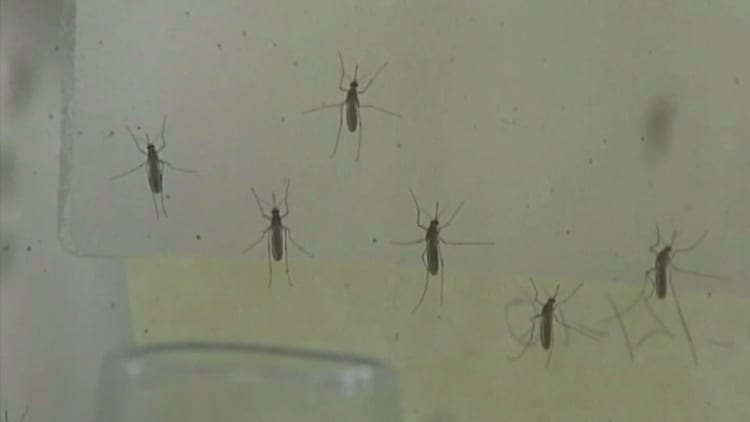
Long after the impending Summer Olympics end, some countries are more likely to feel the after-effects than others due to heightened risk of importing Zika, a new report found.
Chad, Djibouti, Eritrea and Yemen have a unique risk of importing the virus from the Olympic and Paralympic Games in Rio de Janeiro that will begin Aug. 5, the CDC found in a report published Wednesday.
Zika is transmitted primarily through mosquito bites and has been linked to congenital microcephaly and other serious brain defects among babies born to mothers who had the virus.
One piece of good news for Olympic goers is the games will take place during August and September, which are winter months in Brazil. The cooler and drier weather associated with the season means mosquito populations will be smaller than in the summer months, and thus mosquito-borne Zika virus transmission is expected to be low.
The CDC looked at the potential for countries to import Zika via a traveler to the games.
"Whereas all countries are at risk for travel-associated importation of Zika virus, CDC estimated that 19 countries currently not reporting Zika outbreaks have the environmental conditions and population susceptibility to sustain mosquito-borne transmission of Zika virus if a case were imported from infection at the games," according to the report.
Of these 19, 15 countries are not expected to see a substantial increase in risk for importation above the usual baseline for travel by air to Zika-affected countries.
But four — Chad, Djibouti, Eritrea, and Yemen — share a unique factor: their residents do not travel in substantial numbers to any country with local Zika virus transmission except for planned travel to the games.
"With the exception of these four countries, the games do not pose a unique or substantive risk for mosquito-borne transmission of Zika virus in excess of that posed by non-games travel," the report said.
According to the latest numbers available on the CDC website, there have been 1,133 Zika virus disease cases reported in the U.S. and 2,534 in U.S. territories. Still, Congress appears to be at an impasse over funding to battle the spread. Congress began its final week of the summer with no legislation in sight aimed at it.
As of July 6, there have been 2,474 locally acquired cases of Zika in Puerto Rico, by far the biggest number in the U.S. or its territories.
The number of women in Puerto Rico infected with the virus could jump if Zika follows a similar pattern to chikungunya and dengue, which are carried by the same mosquito, said CDC Director Tom Frieden at a New America Zika/Olympics summit on Wednesday.
Mosquitoes in the territory have become virtually resistant to most commonly used pesticides. While the CDC has invented a new pesticide aimed at the insects that is non-toxic to humans, if Congress does not provide funding in the next 72 hours, the CDC will have to stop work on it, Frieden cautioned.
Disclosure: CNBC parent NBCUniversal owns NBC Sports and NBC Olympics. NBC Olympics is the U.S. broadcast rights holder to all Summer and Winter Games through the year 2032.


